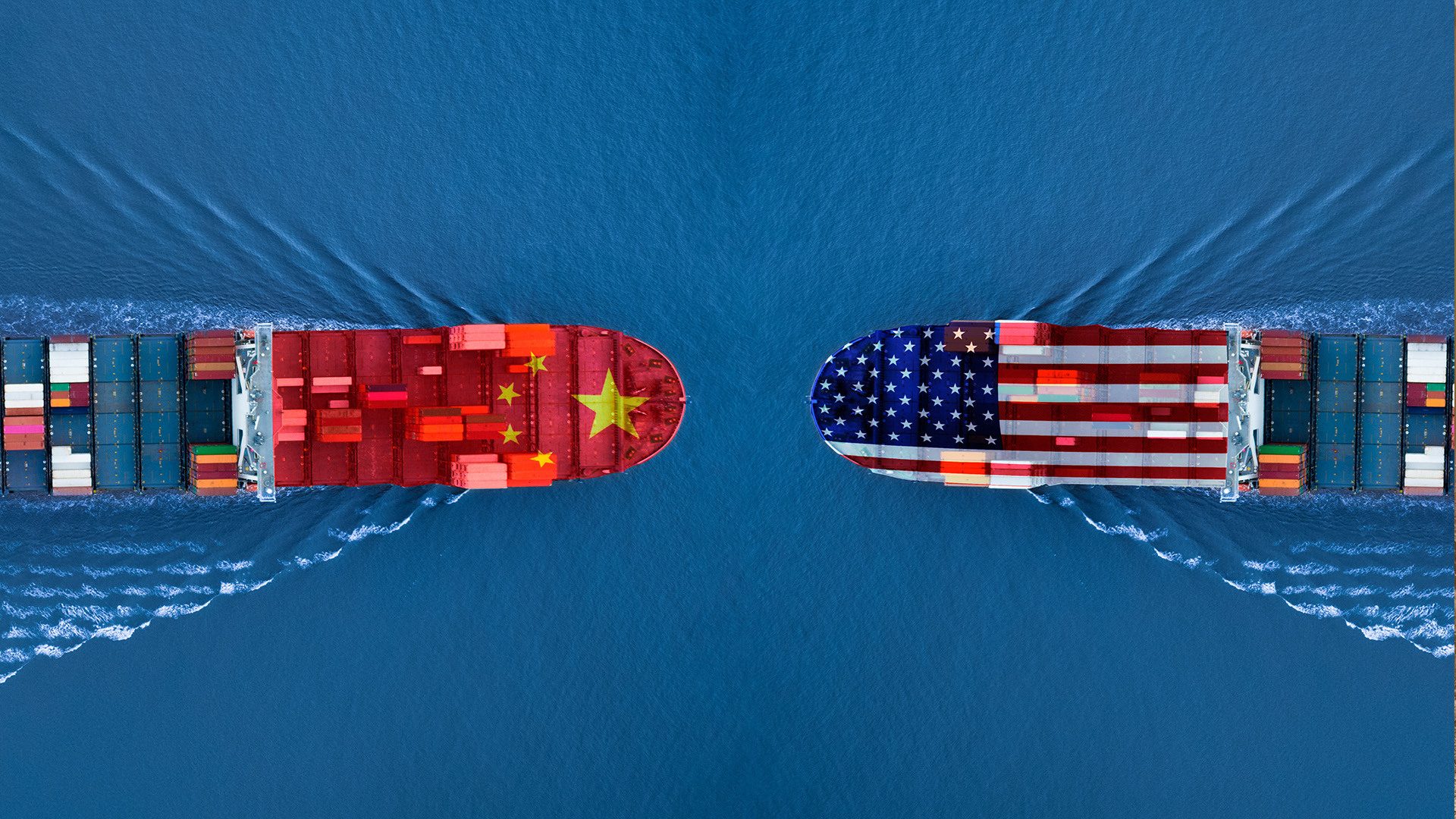
Simone Del Rosario: The closer we get to November, the more we hear about tariffs. That’s on the agenda for both presidential candidates vying for your vote.
But is tariff just a fancy word for tax? And who pays that tax? We’re going to get into that.
First, tariffs were a cornerstone of former President Donald Trump’s economic policy. And since taking office, President Joe Biden has not only kept Trump’s import tariffs in place, he’s been adding on, particularly with targeted tariffs on China.
The right-of-center Tax Foundation recently tallied up that more trade-war tariffs have been collected under Biden than Trump, with the vast majority of revenue coming from Chinese imports.
Meanwhile, if elected to a second term, Trump has some interesting thoughts on expanding his tariffs. We’ve got a flat tariff on all imports:
Donald Trump: When companies come in and they dump their products in the United States, they should pay automatically, let’s say a 10% tax. That money would be used to pay off debt, it’s a massive amount of money.
Simone Del Rosario: And behind closed doors this month, Trump proposed replacing the income tax with tariffs.
According to Investopedia, a tariff is a tax imposed by one country on the goods and services imported from another country. Governments impose tariffs to raise revenue, protect domestic industries, or exert political leverage over another country.
Both Biden and Trump insist tariffs are not a tax on Americans. Here’s the Biden administration after introducing new tariffs:
White House Reporter: When Trump hiked tariffs on Chinese goods, it led to some increased prices for U.S. customers. How can you be sure the same thing won’t happen again?
Katherine Tai, U.S. Trade Representative: First of all, I think that that link, in terms of tariffs to prices, has been largely debunked.”
Simone Del Rosario: While a Republican National Committee spokesperson told Bloomberg: “The notion that tariffs are a tax on U.S. consumers is a lie pushed by outsourcers and the Chinese Communist Party.”
Hmmm…debunked and doing the CCP’s bidding.
We interviewed three analysts from three think tanks across the political spectrum.
We’ve got Brendan Duke from the Center for American Progress, a left-leaning think tank. Chris Towner from the bipartisan Committee for a Responsible Federal Budget, we’ll put them down the middle. And Preston Brashers from the Heritage Foundation, a conservative think tank.
Let’s start with Brashers on the right.
Preston Brashers: The truth of it is that it is a tax. It is something that gets passed along to consumers, and in some cases, it’s going to be something that’s passed along to producers here in the United States when they’re buying products from from from overseas.
Simone Del Rosario: Towner in the middle.
Chris Towner: By the most technical basis, it is a tax on imports, right? It is to try to discourage import buying imports, or to raise the cost of imports. It is definitely a tax. And the fact is that it raises the cost of living for everyone when we have more tariffs.
Simone Del Rosario: And Duke on the left, who recently did analysis on Trump’s 10% flat tariff proposal.
Brendan Duke: I crunched the numbers and calculated that this would raise taxes for a typical family by about $1,500 a year annually, so every year, they would pay that tax. And I think a really key thing is that they would pay that tax on imported products that we don’t produce in the United States.
Simone Del Rosario: Before dismissing Duke’s analysis as being partisan, the centrist Peterson Institute for International Economics placed a higher price tag on Trump’s 10% tariff proposal, saying it would cost the typical American family $1,700 per year.
Combine the income benefits from extending Trump’s tax cuts with two of his tariff proposals, the 10% flat tax and 60% tariffs on China. The Peterson Institute says the bottom 80% of households would experience a net loss in income.
Brendan Duke: We have these taxes that are based on people’s incomes. This is based on people’s spending, and we know that low and middle income people spend a larger share of their income, while higher income people actually spend a very small share.
Chris Towner: There are folks on the left who are really trying to make this about a, you know, like, this is a cost of living increase, you know, it does raise significant revenue. So on the one hand, yes, it raises prices. But really, it’s an, it’s a flat, across the board tax increase.
Preston Brashers: Anytime you’re going to be adding to taxes, you know, as an organization that believes in lower taxes and free trade, it is a question mark as to exactly how we’re gonna go about doing that.
Simone Del Rosario: The Tax Foundation says despite higher costs to Americans, both the Trump campaign and Biden administration continue to defend trade war tariffs. They say it’s a gap between the economic reality – tariffs are a tax passed on to American producers and consumers – and political messaging – that tariffs hurt foreign nations and help the U.S. economy.
Stay informed on election economics this year by downloading the Straight Arrow News app and enabling push notifications.







